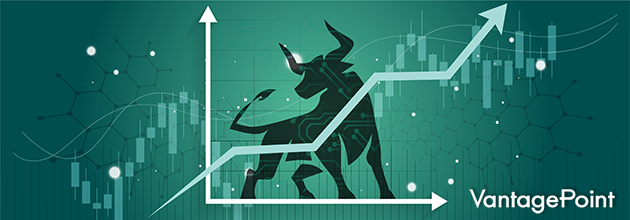Friday turns black - Today's shortened trading day was supposed to be a calm one, given the typically low trading volumes seen on Black Friday, but fears of a new COVID-19 variant found in South Africa is shaking up sentiment. Dow futures plunged more than 800 points overnight, while contracts linked to the S&P 500 and Nasdaq fell 1.8% and 1.2%, respectively, after stocks sold off in Europe and Asia. WTI crude oil futures (CL1:COM) also tumbled nearly 7% to under $73 as the U.K. imposed fresh travel restrictions, though Zoom Video (ZM) and Peloton (PTON) took off as the news revived the stay-at-home-trade. New variant: Believed to have first emerged in Botswana, B.1.1.529 will be called as such until a Greek letter is assigned to it by the World Health Organization. The variant carries an unusually large number of mutations associated with increased antibody resistance and is "clearly very different" from previous incarnations. South African scientists have already detected 30 mutations to the spike protein, which play a big role in how the virus enters the body.The biggest concern is whether the virus could lead to more serious illness or decrease the effectiveness of vaccines and treatments. While we don't yet know whether it's more infectious or deadly than other variants, it's spreading across the globe. B.1.1.529 has been found in travelers arriving in Hong Kong, just as COVID cases surge around the world heading into the holiday season.Go deeper: The World Health Organization has scheduled a special meeting for today to discuss whether to declare the new strain a "variant of concern." "For the moment it is understood that the number of cases is small, but due to the thin liquidity levels in Asia trading as a consequence of the U.S. holiday the reaction does appear to be outsized," said Michael Hewson, chief market analyst at CMC Markets. Other variants of concern include Delta, which is now dominant worldwide, as well as Alpha, which triggered a deadly wave of infections across Europe and the U.S. last winter and spring. (81 comments)

 | Read in Browser |
 |
 |
| | Top News  Shutterstock Today's shortened trading day was supposed to be a calm one, given the typically low trading volumes seen on Black Friday, but fears of a new COVID-19 variant found in South Africa is shaking up sentiment. Dow futures plunged more than 800 points overnight, while contracts linked to the S&P 500 and Nasdaq fell 1.8% and 1.2%, respectively, after stocks sold off in Europe and Asia. WTI crude oil futures ( CL1:COM) also tumbled nearly 7% to under $73 as the U.K. imposed fresh travel restrictions, though Zoom Video ( ZM) and Peloton ( PTON) took off as the news revived the stay-at-home-trade.
New variant: Believed to have first emerged in Botswana, B.1.1.529 will be called as such until a Greek letter is assigned to it by the World Health Organization. The variant carries an unusually large number of mutations associated with increased antibody resistance and is "clearly very different" from previous incarnations. South African scientists have already detected 30 mutations to the spike protein, which play a big role in how the virus enters the body. The biggest concern is whether the virus could lead to more serious illness or decrease the effectiveness of vaccines and treatments. While we don't yet know whether it's more infectious or deadly than other variants, it's spreading across the globe. B.1.1.529 has been found in travelers arriving in Hong Kong, just as COVID cases surge around the world heading into the holiday season. Go deeper: The World Health Organization has scheduled a special meeting for today to discuss whether to declare the new strain a "variant of concern." "For the moment it is understood that the number of cases is small, but due to the thin liquidity levels in Asia trading as a consequence of the U.S. holiday the reaction does appear to be outsized," said Michael Hewson, chief market analyst at CMC Markets. Other variants of concern include Delta, which is now dominant worldwide, as well as Alpha, which triggered a deadly wave of infections across Europe and the U.S. last winter and spring. ( 81 comments) | | New Technology Baidu's (NASDAQ: BIDU) robotaxi business, called Apollo, can now begin charging fees for passengers taking one of its 67 self-driving cars in Beijing. It's the first time a large city in China has allowed companies to charge the public for robotaxi rides, and sets the stage for other cities like Shanghai, Shenzhen and Guangzhou to do the same. So far, Baidu can only offer public trips when a safety driver is accompanying passengers, but the company expects that to change in the next year or two. Bigger picture: While Baidu didn't reveal exact pricing of the new service, it said fares would be similar to other premium ride-hailing apps like DiDi (NYSE: DIDI) - which can cost twice as much as ordinary rides. The new autonomous regulatory permit also covers an area of 60 square kilometers, including a town called Yizhuang that features businesses like JD.com's ( JD) headquarters. On Nov. 16, Alibaba's (NYSE: BABA) autonomous driving company AutoX claimed its fully driverless robotaxis now operate in the largest single region in China - 168 square kilometers located in Shenzhen's Pingshan District. Over in the U.S., Alphabet's ( GOOG, GOOGL) Waymo has been testing self-driving taxis primarily in California and Arizona. Waymo can currently charge the public for fares in a part of Phoenix, while its driverless vehicles don't need a safety driver. General Motors (NYSE: GM) self-driving unit Cruise also said earlier this month that it applied for final approval to become the first robotaxi operator to commercialize fully autonomous rides in San Francisco. Apollo goes global? "We have partnered with many transportation companies in China and are trying to partner with similar companies in other places," said Wei Dong, VP of Baidu's intelligent driving group. "If there is such demand for autonomous driving in other markets, Baidu is willing to cooperate with overseas partners, whether it is an operating company, an automaker or another transportation company. We can export our technologies and experience, and jointly operate in certain areas on the basis of complying with local laws and regulations... Baidu is willing to open up for the international market." ( 51 comments) | | Sponsored By VantagePoint  If you want better trades and better information, join us Monday, November 8th at 12:00 PM ET / 9:00 AM PT and check out our stock watchlist in a free live training.
If you're wondering which stocks are about to explode and how to forecast market movements in stocks, ETFs, crypto, forex and futures, then you are not going to want to miss this. Learn How the Smartest Traders Pick Stocks by clicking this link to register. No replays. No gimmicks. Just A.I. | | Trending The number of air travelers this week is expected to reach or even exceed pre-pandemic levels, according to AAA. That could be a boon for airlines like American (NASDAQ: AAL), Southwest (NYSE: LUV), Delta (NYSE: DAL), United (NASDAQ: UAL) and JetBlue (NASDAQ: JBLU), as long as they could avoid a repeat of massive flight cancellations. In recent months, staffing shortages, scheduling mismanagement and bad weather have all led to trouble for the biggest U.S. carriers. Statistics: Over 2.3M people passed through U.S. airports on Wednesday, marking the most hectic day for air travel since February 2020. In terms of disruptions, less than 0.5% of U.S. domestic flights were canceled Monday through Wednesday, according to FlightAware, and only around 60 flights were scrapped as of Thursday afternoon. Sunday is expected to be even busier, and will prove to be the industry's next challenge. "The airlines are prepared for the holidays," noted Helane Becker, an airlines analyst at Cowen. "They cut back the number of flights, the industry has enough pilots, they are putting more flight attendants through their [ training] academies, and they are paying flight attendants a premium - what I'm going to call hazardous-duty pay - to encourage people not to blow off work." Going by car: AAA sees a total of 48.3M people traveling at least 50 miles from home over the holiday period - an increase of nearly 4M over last year - despite higher prices at the pump. The nationwide average for gasoline on Tuesday was $3.40 a gallon, according to AAA, up more than 60% from last Thanksgiving. President Biden has meanwhile ordered 50M barrels of crude from the Strategic Petroleum Reserve to help bring down energy costs, though that decision may spark a backlash from OPEC+. ( 9 comments) | | Consumer Today marks the unofficial start of the holiday shopping season as investors size up Black Friday to determine the current mood of the U.S. consumer. While fears of a new COVID variant are overshadowing the shopping bonanza, many consumers will still be looking around for bargains. A variety of reports have boosted and hampered the retail sector in recent weeks, making it hard to size up an industry heavily exposed to supply chain disruptions.
| | |
Flashback: Shares of Gap (
GPS) and Nordstrom (
JWN)
slumped 20% in AH trading on Wednesday after
slashing their outlooks on COVID-related factory closures and labor costs that cut into profits. On the other hand, Kohl's (
KSS)
jumped more than 10% from a week ago - after reporting strong sales growth - while retail executives spoke extensively on how they were managing supply chain issues and inflation. Personal incomes and consumer spending for October also came in higher than expected, though core PCE, the Fed's preferred inflation gauge, remained elevated at 4.1%.
Holiday shopping trends are on track to make a comeback this year, with 158.3M people (nearly 2M more people than last year) expected to shop from Thanksgiving Day through Cyber Monday. That's according to the
latest report from the National Retail Federation, which estimates consumers will shell out an average $997.73 on holiday sales during November and December. However, supply issues may have brought forward many holiday purchases, potentially denting Q4 sales. "I would not be surprised if that was a dynamic around the holiday season," said Sarah Henry, a portfolio manager at Logan Capital Management.
Black Friday schedule: The stock market will shut early at 1 p.m. today, bond markets will close an hour later, and metals and U.S. crude oil will settle at 12:30 p.m. and 1:30 p.m., respectively. Some history... Back in 1992, the major U.S. exchange operators called for a 2 p.m. Eastern close for the Friday after Thanksgiving, two hours earlier than the regular close at 4 p.m. The following year, the NYSE and Nasdaq chose to shutter markets at 1 p.m., a schedule that is currently observed.
Today's Markets
In Asia, Japan -2.5%. Hong Kong -2.7%. China -0.6%. India -2.9%.
In Europe, at midday, London -2.7%. Paris -3.3%. Frankfurt -2.6%.
Futures at 6:20, Dow -2.3%. S&P -1.7%. Nasdaq -1.2%. Crude -6.9% at $72.98. Gold +1.5% at $1810.20. Bitcoin -5.9% at $54586.
Ten-year Treasury Yield -1 bps to 1.51%
Today's Economic Calendar
Seeking Alpha's Wall Street Breakfast Podcast Seeking Alpha's Wall Street Breakfast podcast brings you all the news you need to know for your market day. Released by 8:00 AM ET each morning, it is a quick listen that you can put on as you get ready to start your working day.
Download Seeking Alpha for your Phone or Tablet


Want More Ideas?
Our best ideas → Stock Ideas
ETF's Investing Ideas → ETF Ideas
Dividend stocks ideas → Dividend Ideas
This email was sent to you because you signed up to receive Wall Street Breakfast.
If you do not want to receive Wall Street Breakfast emails, click here to unsubscribe.
Sent by Seeking Alpha, 52 Vanderbilt Avenue, 13th floor, New York, NY 10017














EmoticonEmoticon